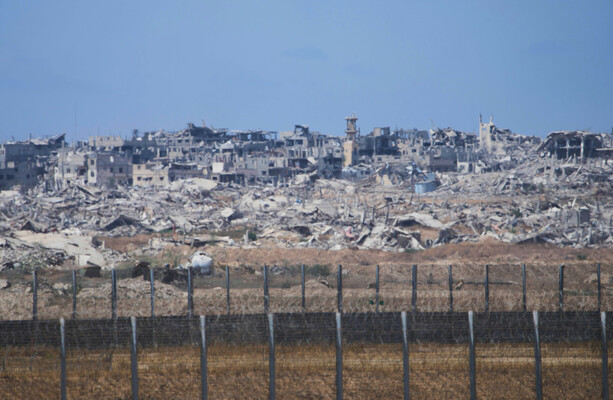Israel Approves Military Expansion into Gaza Amid Humanitarian Crisis










2025-05-05T08:41:00Z

In a significant escalation of hostilities, Israel has officially approved plans to expand its military operations into Gaza, marking a potential shift towards a comprehensive conquest of the Palestinian territory. This announcement, made by an official close to the Israeli government, indicates intentions to not only increase military offensives but also to displace local residents from their homes.
The decision follows the Israeli military's call-up of tens of thousands of reserve soldiers, a move designed to bolster its operations against the Gaza Strip. According to the official, the strategic plan was unanimously agreed upon by the Israeli security cabinet, which includes Prime Minister Benjamin Netanyahu and several prominent ministers, indicating a cohesive governmental stance on the ongoing conflict.
Israel's military actions resumed on March 18, when it breached ceasefire orders with the militant group Hamas, leading to a dramatic increase in violence. In the weeks since, Israeli airstrikes have resulted in over 2,600 casualties, with a heartbreaking number of those victims being women and children, as reported by local health officials.
This latest round of conflict is part of a larger retaliatory offensive initiated by Israel in response to an attack by Hamas on October 7, 2023, which claimed the lives of over 1,200 people in Israel, the majority of whom were civilians. The ongoing fighting shows no signs of abating as Hamas has yet to release hostages it took during that attack, further complicating the situation.
As the Israeli security cabinet convened to discuss military strategies, officials indicated that powerful strikes on Gaza are anticipated. However, these plans have drawn sharp criticism from families of hostages taken during the October attack, who have expressed their outrage at the government's approach, arguing that it places the lives of their loved ones in jeopardy.
In a related humanitarian crisis, various aid organizations working within Gaza have raised alarms regarding severe shortages of food and essential resources. Since March 2, Israel has imposed a comprehensive blockade on the region, which many humanitarian groups and UN agencies have labeled as leading to a looming famine.
Despite government assertions that there is sufficient food available in Gaza, aid organizations vehemently dispute these claims. Peter Power, Executive Director of Unicef Ireland, spoke on RTÉ Radio One’s Morning Ireland, echoing the concerns of Dr. Michael Ryan, deputy secretary-general of the World Health Organization. Power emphasized that the situation in Gaza is rapidly approaching a catastrophic state, calling it a “worst-case scenario.”
Power characterized the current humanitarian conditions as barbaric and inhumane, stressing that withholding food and water from vulnerable populations, especially children, is unacceptable. He pointed out that such actions could constitute war crimes. “We need to call that out for what it is. That is a war crime,” he asserted, highlighting the moral imperative of ensuring humanitarian access.
In a recent development, Israel's security cabinet has tentatively agreed to allow the distribution of humanitarian aid in Gaza, provided it is managed by the Israeli military. The government has expressed concern that militant groups might seize control of the much-needed aid, complicating efforts to deliver assistance to civilians in dire need.
As the conflict escalates, the international community is closely monitoring the situation, particularly regarding the humanitarian impact on Gaza's civilian population and the ongoing hostage crisis.
 Angela Thompson
Angela Thompson
Source of the news: The Journal